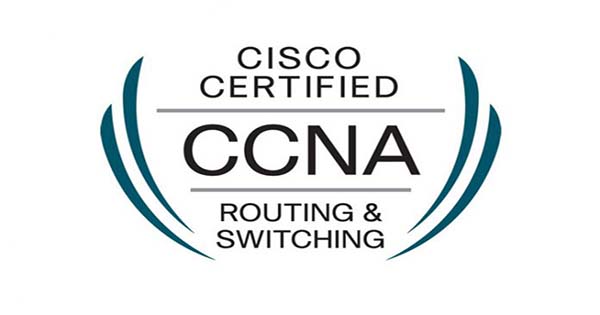
DevOps Career Paths: The Top DevOps Careers You Need to Know
DevOps is a relatively new field in Nepal, but it is gaining traction as more and more organizations in the country recognize career opportunities with the adoption of DevOps practices. When you have deep knowledge of DevOps in Nepal, you will have various DevOps career paths to choose from. DevOps engineers, release managers, and site reliability engineers (SRE) are some of the in-demand career prospects for one with DevOps skills.
DevOps professionals work on automating the software development and delivery process, improving the performance and scalability of the software, and ensuring the security and reliability of the software. Almost every IT company in Nepal is now implementing DevOps practices and filling up the requirements of DevOps services in Nepal. There is a good opportunity to build a career in DevOps as there are immense DevOps career paths in Nepal.
What is DevOps?
DevOps is a set of practices that combines software development and IT operations to improve the speed, quality, and stability of software releases. It is focused on bringing development and operation teams together to work collaboratively and efficiently in order to deliver software faster and more reliably.
DevOps practices include continuous integration and continuous delivery (CI/CD), which automate the software development process and reduce the time it takes to get new features and bug fixes to customers. DevOps also focuses on automating repetitive tasks, such as testing and deployment, and implementing monitoring and alerting systems to ensure the performance and stability of the software.
What Are the Benefits of DevOps?
DevOps practices provide a culture of continuous improvement and innovation, leading to faster time-to-market, higher-quality software, and increased customer satisfaction. It also helps organizations to be more responsive to changing business needs and to scale their software more easily. There are a variety of benefits one can take from DevOps but the major ones are listed below.
High Development Speed
DevOps can certainly speed up development by implementing practices and tools that streamline and automate the software development process. The use of continuous integration (CI) and continuous delivery (CD) enables developers to integrate code changes and release new features and bug fixes more frequently and quickly.
Automation of repetitive tasks such as testing and deployment can also greatly speed up the development process and reduce the risk of errors. Additionally, DevOps improves collaboration and communication between development and operations teams. With the use of cloud services, DevOps can help to break down silos and facilitate faster development. However, it's important to note that it depends on the specific implementation and execution of DevOps practices in an organization. It may not always speed up development in all cases.
System Stability & Reliability
DevOps is generally considered to be good for system stability and reliability as it focuses on implementing practices and tools that help to monitor, test, and maintain the software. Its automated testing feature helps to ensure the quality and stability of the software. With the use of Site Reliability Engineering (SRE), it ensures the reliability, scalability, and performance of the software and the underlying infrastructure.
Automated deployment tools can deploy updates and new releases to the production environment in a controlled and consistent manner, reducing the risk of human error and improving the reliability of the software. Furthermore, the use of Infrastructure as Code (IaC) enables developers to provision and manage infrastructure through code, making it easy to automate the provisioning, scaling, and management of infrastructure.
Security
DevOps can certainly help to improve the security of software, but it is not a guarantee of security. Security is an ongoing process that needs to be integrated into all aspects of the software development lifecycle. It promotes the use of security best practices and tools throughout the software development process.
DevOps integrates security testing and code reviews into the CI/CD pipeline which helps to catch and fix security issues early in the development cycle. It also promotes the use of infrastructure as code (IaC) which allows organizations to provision and manage infrastructure through code, this makes it easy to automate the provisioning, scaling, and management of infrastructure, including security configurations.
Higher Customer Satisfaction
DevOps implements practices and tools that focus on delivering new features and bug fixes to customers quickly and reliably, ultimately improving customer satisfaction. It promotes the use of continuous integration (CI) and continuous delivery (CD) which typically automates the software development process and reduces the delivery time.
DevOps helps in frequent software releases and helps to keep customers engaged and satisfied with the software. It also helps understand customer needs and feedback and perform the necessary changes. Additionally, DevOps quickly identify and resolve issues that could potentially make you lose customers.
Competitive Edge in the Market
DevOps provides a competitive edge in the market as it enables organizations to deliver new features and fix bugs more quickly and in a reliable way than the competitors. The continuous integration (CI) and continuous delivery (CD) practices in DevOps help in the automation of the software development process and reduce the delivery time.
DevOps helps organizations to release new features and products in the market quickly, providing a significant competitive advantage. Moreover, DevOps promotes the use of automation, monitoring, and scalability, ultimately helping organizations to be more efficient and productive, more reliable, stable, and scalable.
DevOps Career Path in Nepal
DevOps is a promising field in Nepal with a range of career prospects. As more organizations have started adopting DevOps practices, the demand for DevOps professionals is expected to increase immensely in the future. Organizations from every sector, including e-commerce, banking, and telecommunication sectors are implementing DevOps practices to improve the software development process. There are various roles you can choose from with the right DevOps skills. Below are listed the most popular DevOps career paths in Nepal.
DevOps Engineer
This role involves working on automating the software development and delivery process, implementing continuous integration and continuous delivery (CI/CD) pipelines, and managing the infrastructure that supports the software.
Release Manager
This role involves coordinating and managing the software release process, ensuring that releases are delivered on time and without issues. Release managers also work on automating the release process and implementing best practices for software release management.
Site Reliability Engineer (SRE)
This role involves working on ensuring the reliability, scalability, and performance of the software and the underlying infrastructure. SREs work on implementing monitoring and alerting systems, automating incident response, and improving the overall availability and performance of the software.
Cloud Engineer
This role involves working on implementing cloud infrastructure and services, such as AWS, Azure, or Google Cloud Platform. Cloud engineers work on designing and implementing cloud-based solutions that support the software, and they also work on automating the deployment and management of the cloud infrastructure.
Automation Engineer
This role involves working on automating the software development and delivery process, implementing tools and scripts to automate repetitive tasks, and improving the overall efficiency of the software development process.
Security Engineer
This role involves working on ensuring the security of the software and the underlying infrastructure, implementing security best practices, and identifying and mitigating security risks.
Looking at the DevOps career paths, we can conclude that it is a great career choice for individuals with a background in software development and IT operations. It is important to note that many roles in DevOps may overlap and individuals may have a blend of skills from different areas.
Why Choose TechAxis for DevOps Training in Nepal?
Pursuing a career in DevOps in Nepal requires you to have a strong background in both software development and IT operations, as well as experience with the tools and technologies commonly used in DevOps, such as Git, Jenkins, Docker, and Kubernetes. You can gain the right skills and knowledge to become a DevOps professional only when you choose to take in a reputed IT academy in Nepal. DevOps training in Nepal. TechAxis is considered one of the best IT institutes in Nepal to provide the best DevOps Training in Nepal.
The following are the reason to choose to learn DevOps with TechAxis.
Hands-on training: We provide hands-on training with real-world tools and technologies, giving you the practical skills you need to be successful in DevOps.
Industry-relevant curriculum: We have a curriculum that is designed to meet the current and future needs of the industry.
Experienced instructors: We have experienced instructors who have a deep understanding of DevOps and can provide guidance and mentorship to you.
Career support: We provide career support to help students find job opportunities and prepare for interviews.
Networking opportunities: You get to study DevOps with other like-minded individuals and it will give you an opportunity to network with your peers.
Flexible learning options: We offer flexible learning options, such as online and part-time courses, to accommodate different schedules and learning styles.
Up-to-date knowledge: We keep the course material and labs up-to-date with the latest trends and technologies.
Connect with TechAxis and join our top-notch DevOps course in Nepal now.











